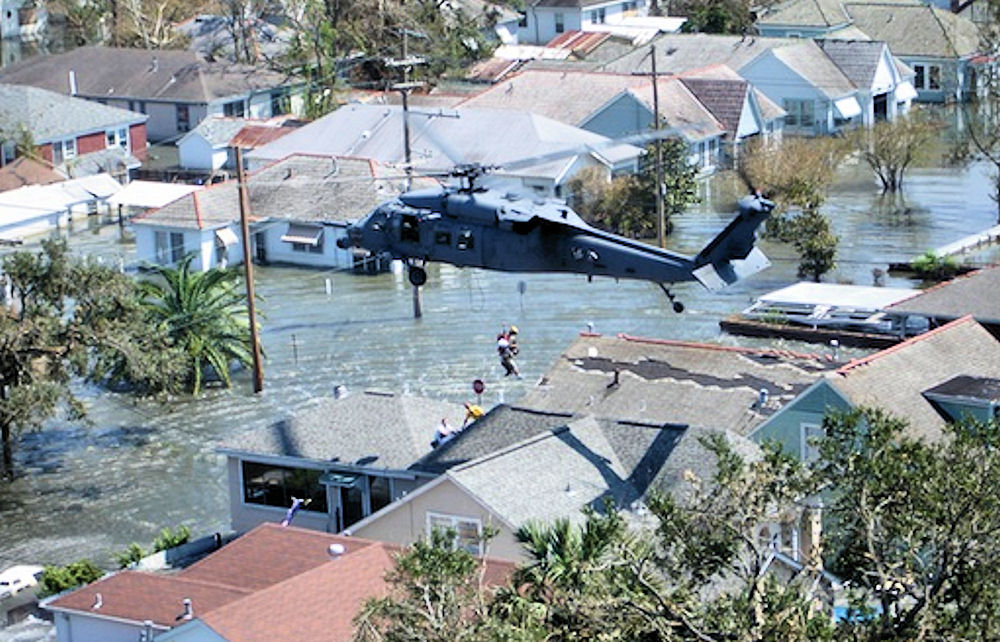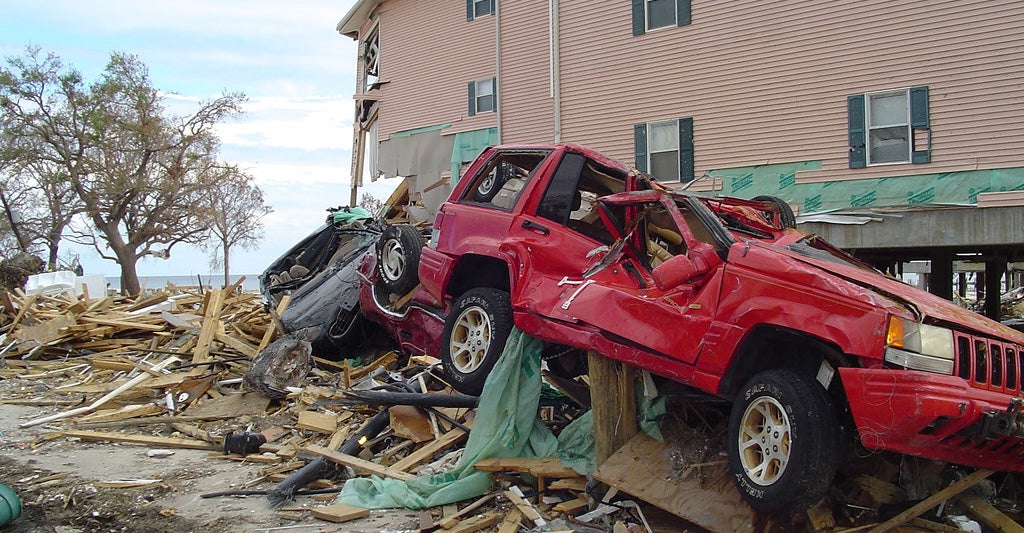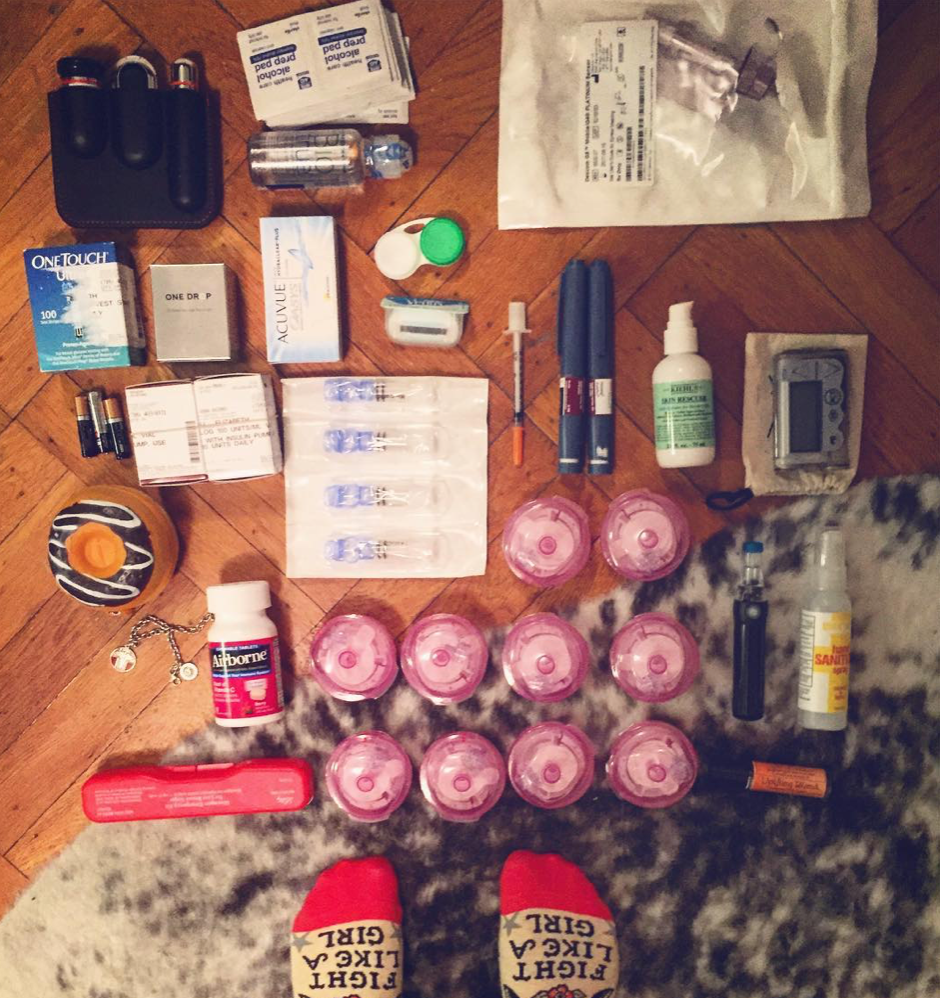Remember Hurricane Katrina?
Hurricane Katrina was one of the costliest and deadliest storms to ever hit the United States. After Katrina, many people didn’t have access to essential medications and supplies.
There was no electrical power. No drug stores. No food stores. No reliable source of safe, clean water. And very limited transportation.

Are You Prepared for an Emergency Situation?
Emergencies happen. And everyone with diabetes should have an emergency plan. Hurricanes, tornados, typhoons, floods, avalanches, mudslides, forest fires, earthquakes.
Even a thunderstorm can knock out electrical power for days. You need to be sure that, no matter what, you have access to all of your medications and any other necessary supplies.

Your Diabetes Emergency Kit Should Include:
-
Portable, insulated, and waterproof container. Backpacks work great!
-
Blood glucose meter kit
-
Backup meter kit
-
1-month supply of meter test strips
-
Syringes (for both MDI and pump users)
-
Short-acting insulin pens (and extras!)
-
Long-acting insulin pens (and extras!)
-
If you're on an insulin pump, 1-month supply of pump supplies: infusion sets, tubing, batteries, and insulin. Be prepared to switch to insulin injections if your pump stops working. You need to know how to manage your insulin using this alternative approach, no matter how well you have been doing or how long you have been using a pump.
-
Medical Alert bracelet (or equivalent)
-
3-day supply of water in a safe place
-
2-day supply of non-perishable foods
-
Cell phone and charger (it's a good idea to have a car adaptor so your cell phone can be charged with power from a car)
-
First aid supplies such as bandages, cotton swabs, dressings, topical medications (such as antibiotic ointments).
-
Flashlights, batteries.
-
A designated meeting place in case you are separated from your family and/or significant others and are unable to reach them by phone.
-
A supply of rapidly absorbed carbohydrate to use in the event of a low blood glucose. These should be easily transferable and packable (non-liquids), like Transcend gel, glucose tablets, or Skittles.
-
The most recent information regarding your medications so you can get refills of medications, as needed, if the power goes out, and obtain treatment from a new medical care facility, if needed. This critical information should include:
-
information regarding your current medication regimen
-
contact information for all of your health care providers
-
health insurance info
-
-
1-month supply of all of your medications. For medications that need to be refrigerated, make sure you have a way to keep them cold (but don't freeze them)!
-
FRIO packs work great! Do not use dry ice; do not ever freeze insulin – freezing can inactivate the insulin.
-
-
At least 1 Glucagon kit. If your doctor hasn't prescribed one, ask him/her about it at your next office visit. Make sure that family, friends, and everyone else who is likely to be with you know about the Glucagon kit and how to use it.
-
Extra cash. If the power goes out, you may not have access to an ATM or your bank account. If you need to purchase more insulin (or any other diabetes supplies), you'll need to be able to pay with cash.

If you do get displaced because of a natural disaster, there are groups set up for disaster relief.
Reach out to the Diabetes Disaster Response Coalition (DDRC) via their hotline -- 1-314-INSULIN (314-467-8546) -- or on Twitter; contact the American Association of Clinical Endocrinologists on Twitter; use the DDRC's contact sheet for more resources. There are many preparedness plans that have already been set up for these kinds of situations, you just need to reach out to the proper contacts.
As long as you're prepared with your emergency kit and plan of action, you will get through this!





